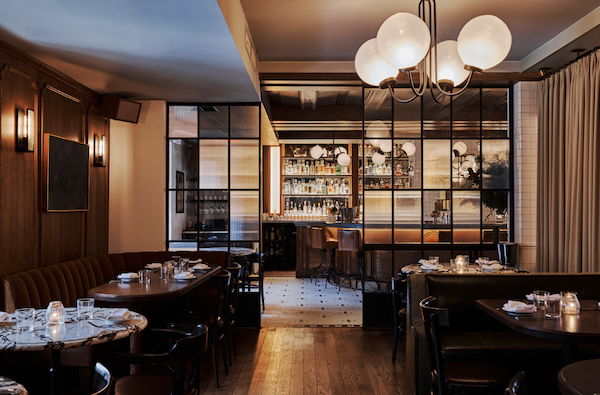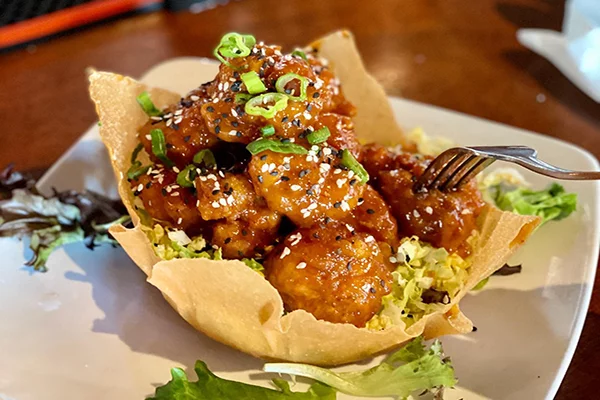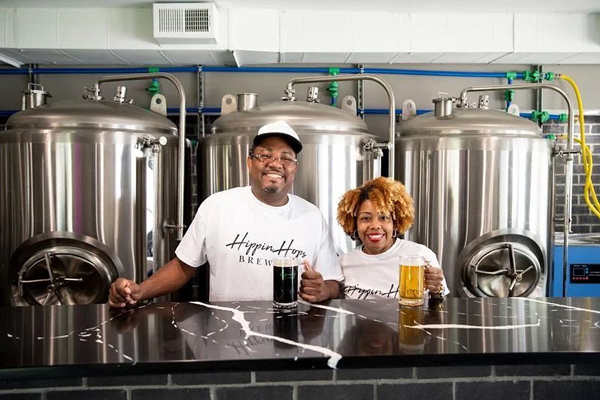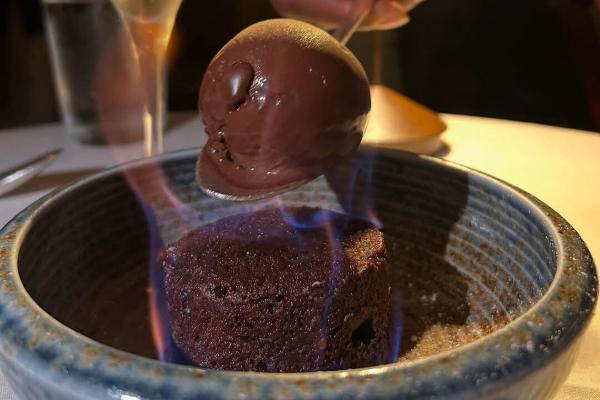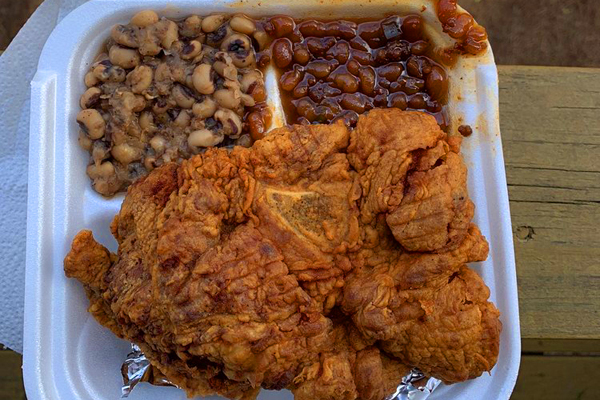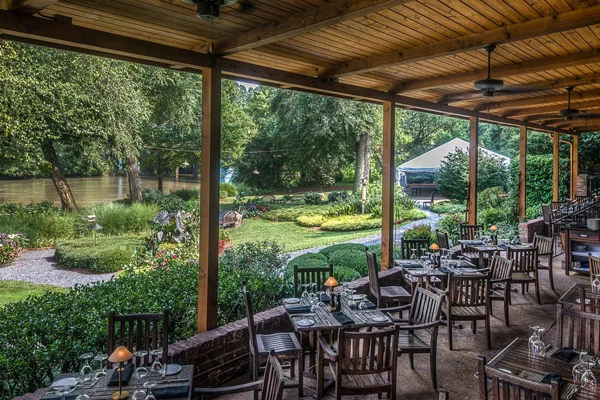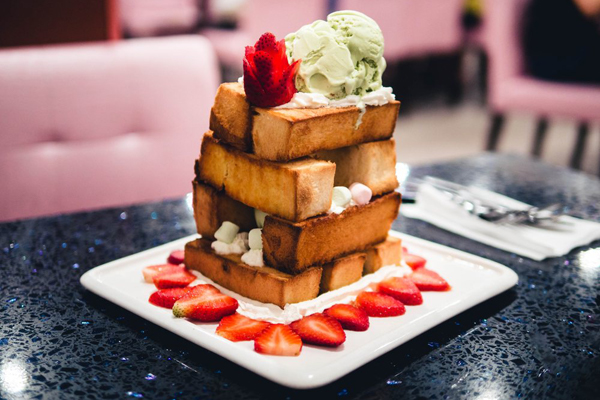Chatting with Chef Ron Hsu
Chef Ron Hsu has become one of Atlanta’s defining culinary voices.
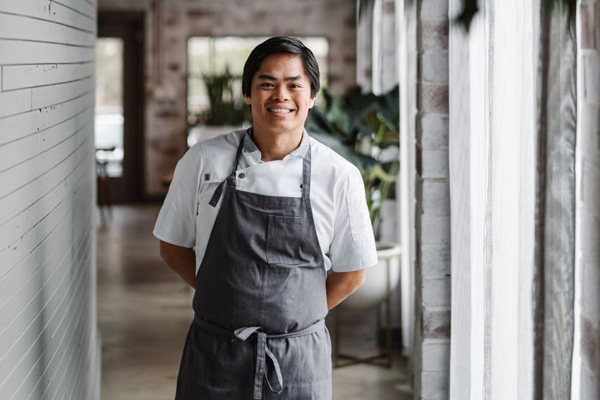
Along with Ford Fry and Kevin Rathbun, when Ron opens a new restaurant, people pay attention. And more importantly, they eat there.
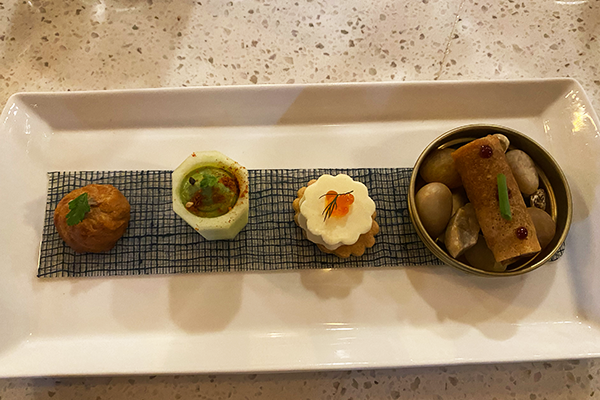
It’s tricky to define his culinary style based on his restaurants alone. Lazy Betty (named for his anything-but-lazy mother Betty) is a high-concept tasting menu dining experience. Humble Pie is a casual neighborhood eatery. Juniper Cafe (closed for dine-in but their wholesale program is still open) is a Vietnamese bakery. But perhaps the best way to define Ron Hsu’s restaurants is the most simple: delicious food served by caring people.
But what does Ron himself have to say? I paid him a visit at the active construction site of the upcoming Lazy Betty location in the former Empire State South space to find out. We covered his deep roots in the food world, his intensive time working in one of the finest restaurants in the world, and his triumphant return to Atlanta.
You come from quite a rich culinary background. Can you talk about that?
I grew up in the restaurant industry. My parents had a chain of mom-and-pop Chinese restaurants here in Georgia [called Hunan Village], mostly throughout Henry County. And because we were tight on childcare, my mother convinced the school superintendent to have the last stop on the bus line be at her restaurant. She finagled a deal: when you get to China in geography class, I will donate lunch from my restaurant to help teach Chinese food and broaden everyone’s scope of world cultures.
What’s interesting is my father was a chef too back in Malaysia, but I didn’t know that until about eight years ago when I was already knee-deep into my chef career and on the verge of moving back to Atlanta. And that was completely coincidental, I just thought he worked in restaurants with my mom as a way to pay our bills growing up. But it was something he did even before moving to the United States.
So how did this culinary upbringing eventually lead you to decide to pursue being a chef and go to Le Cordon Bleu?
I think it was more that I knew what I did not want to do, which steered my decision. I was at the University of Georgia in the business school and I hated going to all those business classes. I did the bare minimum, I couldn’t focus or find the motivation to become a good student. But I had grown up and always worked in restaurants, plus I was in social clubs that revolved around food, so Andrew, my roommate at the time, was like, “Why don’t you consider becoming a chef?” And I thought about it, and once that idea hit my brain, I realized I’ve always loved cooking. I always thought my family wanted me to be a doctor or lawyer or something and just assumed they didn’t want me to be in the restaurant industry. So when I finally had that career path stuck in my brain, I approached my mother about going to culinary school. In order to get her backing, my plan was to finish college and get my business degree and then go to pursue a culinary degree. But she was the one who said, “Why waste your time? Just drop out next semester and go.” And so that’s what I did. She was totally supportive.
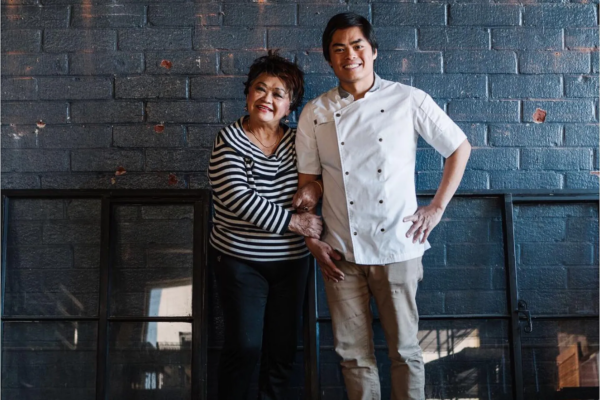
What was your first step after receiving your mother’s blessing to go for it?
She was very smart about it because up until then, I had mainly worked at our family-run restaurant. And she said, “If you really want to pursue a job as a chef then go find another kitchen job outside of our restaurants.” And so I did [at an Athens tapas bar called Speakeasy in the space that is now Dooley’s Bar & Grill] and I excelled at it. After about six months, she saw that I could hold down a job in an outside kitchen setting and was like, “Alright, you showed me you’re willing and you’re good at it. You have my blessing.”
So you had your six months or so working in Athens while taking classes, and then you decided to go to culinary school. How was that experience?
Culinary school was very fun for me. I went to school in Sydney, Australia so a lot of my fellow classmates were also students from other countries, and we just all clicked right away. It was just a fun year and a half of hanging out with your best friends, just eating and talking food and having fun in class. I actually looked forward to class.
That must have validated your decision then to head over.
(laughs) I don’t know. What was validating was that I was one of the better performers in culinary school and one of the more experienced in terms of real world experience at that point, even though I’d only worked six months outside of my parents’ restaurant. A lot of the kids there had never worked in real restaurants.
And what was your reasoning for going to the Le Cordon Bleu location in Sydney?
I was already planning on doing a study abroad program while I was at school, and it was actually my mom’s idea. She was like, “If you want to travel, which I know you do, do it while you’re young…why don’t you see if they have a culinary program that you would like to do in Australia?” Because I had already figured out which plane tickets I wanted to get, when I wanted to go, and I already had living accommodations ready to solidify. And so my mom was like, “You already have all these logistical things figured out, so if they have your program in Australia, you should consider it.” And I did. I also liked that a big part of their curriculum was learning Asian food because there’s proximity, they’re right next to Asia. So I really liked that as well, and they have a pretty international food scene down there. So there were a lot of reasons that came together.
So you had your year and a half there and then you ended up in New York. What led to that?
So ironically I also dropped out of culinary school because it got too expensive. So my highest level of completed schooling is high school. There were two main reasons I left Australia, one was financial. The second was that my student visa had actually expired because I filled out the wrong info. At that point I was already an illegal alien. Their policy was that I had to leave the country and couldn’t come back for three years. So that kind of forced my hand and accelerated me leaving.
That’s how I ended up moving back to Atlanta. I worked at a restaurant called Dish [“a high-end concept with a chef-driven and globally-inspired menu”] in Virginia Highlands, which was and is a little culinary hotbed. I started at the bottom and rose up to become the chef de cuisine; then I was basically running the kitchen for about nine months. And at that point I wanted to push my career further along so I thought about New York. And my mentor at that time, Sheri Davis, who was also the chef/owner of Dish, had worked in places in New York, including Le Bernardin. And so she set me up with a stage [“which is basically kitchen lingo for a working interview”] at Le Bernardin. I took a long weekend trip up there and staged at Le Bernardin, Daniel, and another restaurant called Payard, which is now closed. I got a job offer from all of them but I took the job at Le Bernardin. And then in May of 2007, I moved up to New York and I worked at Le Bernardin.
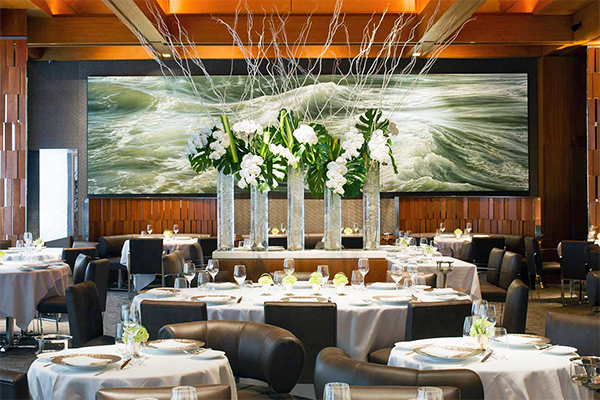
Then you end up in New York at this acclaimed restaurant. What was that kitchen experience like?
Oh man. That kitchen experience was very daunting. Most other restaurants I worked at, the biggest staff on the line was probably four people. My first day working at Le Bernardin, I was probably working with 18 people who were just line cooks, not including the pastry department or the management team, which was something like three sous chefs, a chef de cuisine, and an executive chef. And that was just the savory side!
So first and foremost, the sheer size of the team was very intimidating. And then getting to know the backgrounds of all the people there, they were all like former executive assistant sous chefs. So just the level of talent and the level of experience that the cooks at Le Bernardin had. They were starting at the bottom even though they had executive chef experience. And just the structure, the organization of it. It was literally one of those kitchens where if one of the chefs says something, the rest of the kitchen in unison will reply, “Yes, chef!” It was eye-opening to experience that level of professionalism.
Did that experience show you that you wanted to be a restaurateur?
Those lessons didn’t really formalize until later in my career at Le Bernardin. I didn’t know I wanted to be a restaurateur, I just knew I wanted to run my own kitchen. I liked doing different types of food and wanted to express myself so owning multiple restaurants was the byproduct of that.
But the journey back then was just figuring out what kind of restaurant and what kind of chef I wanted to be. A lot of that was learning what to do and learning what I did not like to do. And any good professional person in any industry can learn by accepting and learning, by accepting practices and not accepting practices. You learn what’s good and bad, and you adopt what you want, and you take away what you don’t want to implement at your spot.
I’ve learned much more from my bad bosses than my good ones. Learning isn’t just about emulating habits but about discarding them.
You’re 100% right.
What eventually brought you back home to Atlanta?
I was at Le Bernardin for about ten years in total. And I say total because I left and worked as an executive chef in another New York restaurant for about two years and then went back. I would say going back and forth from Le Bernardin to my executive chef stint back to Le Bernardin is where I learned a ton. That really changed my career trajectory. And like you said earlier about discarding things, I learned what I wanted to discard out of my future career. And I applied a lot of those to where I currently am.
So there were certain aspects of dining that I wanted to emulate, which I thought the Atlanta market would be more receptive to, which just felt more Atlanta than New York. If you go dine at Lazy Betty, I like that our staff is able to connect with our diners and our guests on a more personal level and it’s not super buttoned up. We want to joke around and get to know you. PJ, one of our senior employees at Lazy Betty, can recognize any of our regulars and knows them by name. And we like having that relationship with our guests. Whereas in New York it’s a little more buttoned up. I like to encourage our staff to make small talk, to get to know them and shoot the shit with them. So because of that, I wanted to come back to Atlanta. And it’s my home so I wanted to bring something to the Atlanta food scene at the same time.
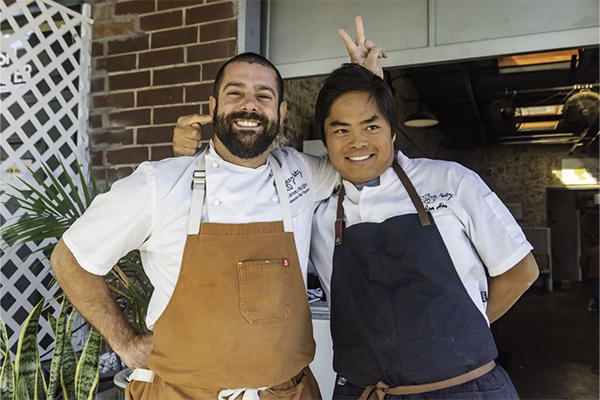
You have a pretty prolific partnership with Aaron Phillips. How’d that relationship come to be and how would you describe the give and take of your dynamic?
That relationship has been evolving since day one when Aaron and I met at Le Bernardin. I believe I was already a sous chef while he was staging, and we clicked right away. As Aaron worked his way up the chain, we became friends. A lot of times I would be assigned a certain task and my immediate boss would ask who I want on my team and I would consistently pick Aaron. So we worked very well together.
And then when I got the idea to move back to Atlanta, I asked Aaron to get lunch to tell him I was moving back to open up a restaurant. So when I had that conversation with him, he goes, “Why didn’t you ask me to move to Atlanta?” I’m like, “Because it’s a big thing to ask people to move for potential business opportunities, especially for restaurants because they’re historically not very stable and most of them fail.” And so it was already on his mind. And I was like, “Well, if you want to come to Atlanta and open up a restaurant with me, go ahead.” And then a week after I moved back, before we even had contracts signed or any of that, he calls me and said he was in Atlanta. And I was like, “Oh man, I didn’t know you were gonna be that quick to jump the gun…I don’t even have a lease signed yet…I don’t even know where the restaurant’s gonna be.” And he is like, “Well, I’m here.” He’d sold his condo and moved with his partner. He found a restaurant job and then he and I hosted a popup while we tried to get the brick-and-mortar open.
How did you decide to start with a higher-end tasting menu concept for your first restaurant [Lazy Betty]? I feel like people usually start with a sandwich shop or something, but you went all-in!
I loved all sorts of restaurants but the one I wanted to do the most was Lazy Betty. Not just because of the food that we get to do, but it also allowed me the kind of lifestyle that I wanted because I didn’t want to do a restaurant at that point that was open for lunch and dinner, which would’ve meant I was open for 18 hours a day.
Also the type of employee that a restaurant like Lazy Betty could attract was the type that I wanted to work with. They look at the job as a craft, as an art. There’s nothing wrong with a more casual restaurant but you speak a different language and you have a different approach when you’re doing different types of projects.
I also wanted to do other restaurants but I knew if I had one shot (which I did because I put all my life savings into the restaurant) I’m gonna do the one that I want to do the most. And I didn’t want to live life with regret. I was gonna try and if I failed, at least I tried my best.
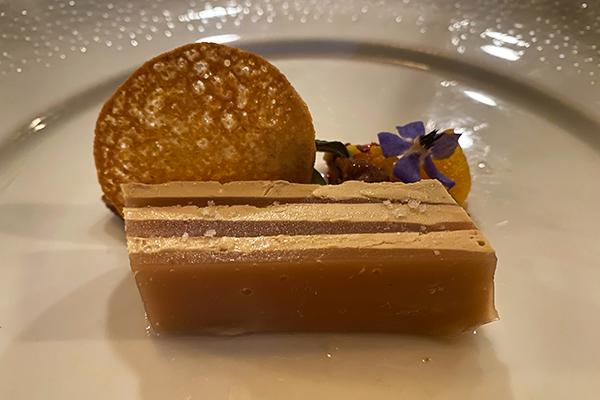
Did Lazy Betty catch pretty quickly or did it take time?
I think it caught pretty early even though I didn’t know it. I had developed our projections and we weren’t quite as busy as I wanted us to be. But after a few months of operating, I realized we were actually doing well financially. But it didn’t feel like it. I always hope for the best and prepare for the worst. I wanted a line out the door every day! And that did not happen. We were busy on the weekends, even though we weren’t as busy as I wanted to be, like on Wednesdays, Thursdays and Sundays, which are slower days in restaurants. It was a little defeating. But then after understanding the business and the market a little better, and looking at our numbers I was like, “Oh yeah, we’re actually successful.”
And then after six months, a lot of the awards and publications and stuff came out and I was like, “Oh, people like us. We’re doing good and we’re successful.” It was a little surreal at that time. The goal wasn’t to win awards and stuff, it was just to do the best possible restaurant we could do.
View this post on Instagram
What was your experience like getting a James Beard Award nomination for Best New Restaurant?
Unfortunately, four months after I opened Lazy Betty, my mother passed away. And then about three months after that, we got nominated for Best New Restaurant by the James Beard Foundation. And it kind of felt like my mom was still supporting me and looking down on me. It was surreal because I never expected us to get to that level of success. So it was a lot of emotions. I was still pretty beat up about my mom passing away when the James Beard hit, and it made me feel connected to her again.
Then there was a little high, and our business was getting even better because of the nomination. But after that, there were rumblings coming from Asia and Europe about COVID. We were actually one of the restaurants to close before the city made it mandatory. We felt we should close because we couldn’t have our staff potentially get COVID. So everyone was riding high and then COVID hit. It was really a rollercoaster of emotions.
And I’m sure then the experience was very different when you and Aaron were nominated again in 2023, but for Best Chef in the Southeast.
Yeah it was. I liked the restaurant nomination more because it’s a group effort. Being the best chef is good and all, but the restaurant is why I do it. I really need to give credit to the team because, without them, I wouldn’t have gotten it.
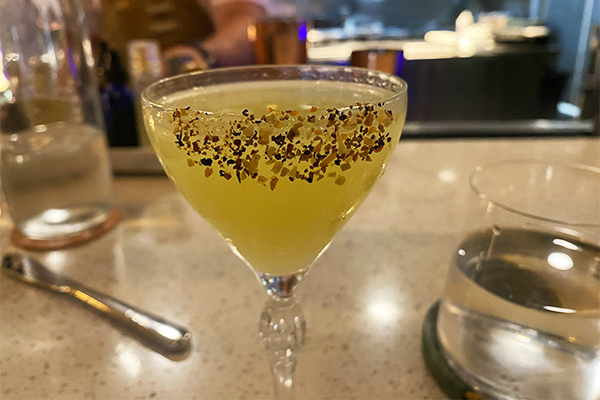
And now here we are sitting in what almost appears to be an active construction site. Why the change in location for Lazy Betty?
The first leg of the lease at Lazy Betty is running its course. I could renew, but we just don’t have much more room for growth there due to the logistical constraints of the space. The lease is running its course and this [the former Empire State South] is such an iconic space, and they’re giving us a lot of good reasons to move here. The building itself is much nicer while our current building is a little older…it’s a converted garage. I think this part of town is a little more accessible as well, whereas our current location is a little off the beaten path. So I think we’ll be able to do more business here as well. One thing that my team is really excited about is we’re gonna have a bar. At the current Lazy Betty space, we turned the bar into a chef’s counter. We’ll also have an actual real outdoor patio whereas at Lazy Betty the patio was kind of a fixer-upper project that we did out of necessity because of COVID.
So this is going to be a new location, not a second one?
Yeah, we are gonna close that other one down and relocate here. The tricky part is trying to balance the construction schedule with the end of our lease. I don’t want us to go dark for too long.
How do you approach a tasting menu like this where you have to maintain a certain level of quality with different dishes?
We have a few guidelines that help us dictate the progression of our menu. One is guest feedback. There are a lot of things that I may like or our chefs or Aaron may like, but then once we put them on the menu if enough customers aren’t liking it, then we probably need to change it. Another thing is seasonality. You’re probably not gonna serve corn or tomatoes in December. Another thing is, do we like it more than the dish it’s replacing? We make sure that our menus are always moving forward. If we’re gonna take something off, it’s gotta be better than the previous dish. And the other one is just what inspires us at the time. We try not to limit ourselves too much. The guidelines are broad, but we do have a little framework within them that helps shape the menu. I’m a believer that if you don’t have any constraints, then creativity is easy to implement. But if you have rules, then it forces you to be more creative.
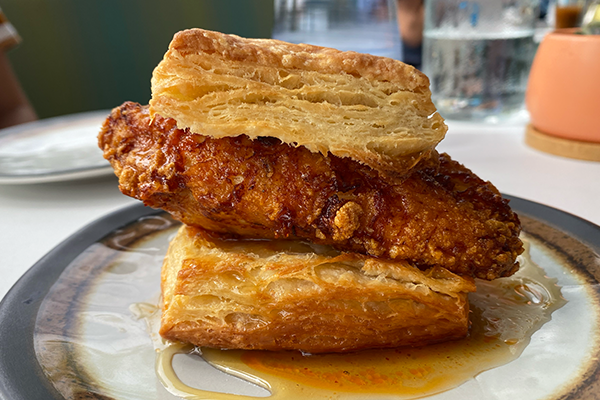
So your second Atlanta restaurant was Juniper Cafe. After starting with such an intricate and perpetually-changing concept, what inspired you to simplify in a sense and open a Vietnamese-inspired bakery?
In terms of the business model, Juniper Cafe was much more complicated because we did breakfast, lunch, and dinner while Lazy Betty is only dinner. Juniper Cafe’s food itself may not have been technical or hard, but we still made everything from scratch: all our bread and our pastries and stuff. So we still had very high-quality products that we made from scratch. But the concept itself really came about because I’m Chinese and I went to a classically French culinary school and Vietnamese food is the perfect crossroads of the two. It allowed me to combine my Asian upbringing and my formal training with French food. And I love Vietnamese food.
There’s such a comfort to it.
Yeah, and when Juniper opened up, my daughter Calliope was only two. Your view on the world changes when you have kids. Juniper was somewhere where I could bring Calliope and she loved it. I couldn’t really bring Calliope to Lazy Betty. I think that has skewed the type of restaurants that I want to do to a degree.
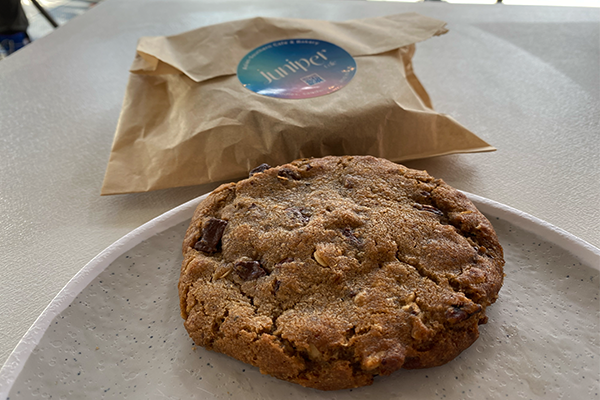
You made the decision at the end of 2022 to close Juniper Cafe. What went into that decision to close and do you think there’ll be a future iteration of Juniper?
The decision to close was just because it wasn’t a viable business anymore. We had to sink a lot of extra money into it so we decided to just cut our losses. Even though the product was a very good one, it just didn’t work business-wise. It was a very hard decision. We were also about to open Humble Pie, and we figured we could either try to keep Juniper alive or we can just relieve ourselves of that burden and focus on Humble Pie. And we felt that Humble Pie has a lot of potential and a lot of resources being poured into it, so we would just focus on that and try to do something else with the space there, which is how Gezzo’s materialized, which is my brother and sister’s Mexican restaurant. And it allowed me and my other business partner Drew to really focus on the opening of Humble Pie.
So right now your priorities are Humble Pie and Lazy Betty’s new location.
Yeah, we’re not actively looking. Right now, we’re focused on the relocation of Lazy Betty and our recently-opened West Midtown restaurant Humble Pie. Drew and I love Juniper Cafe, it had a very good brand and name recognition and we don’t want to give up on it. If the opportunity comes for us to revitalize it, we will, but it’s something that we’re not actively doing. So we’re just waiting and seeing.
How would you describe Humble Pie, which is much more than a pizza joint?
We sell a lot of pizzas, but I consider it more than just a pizza spot. We’re an American neighborhood restaurant, and we serve a lot that’s not pizza-related. I mean, you could go in there and treat it like a tapas bar if you wanted because we do so many little small plates and shareables. Or you could go in and just get pizza as well. We also have some non-pizza entrees, so you can get a burger or a roasted chicken breast with fingerling potatoes and wilted spinach.
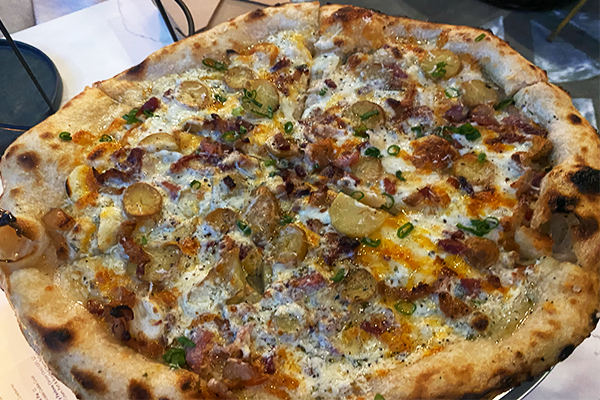
There are a few classics on the pizza menu — margarita, pepperoni — but then you go a little wild with pies like the Loaded Baked Potato (my personal favorite) and the Ragin’ Cajun Shrimp. Where’d you get the inspiration for such crazy toppings on pizza?
At its core, pizza is essentially bread, and if you can make it into a sandwich, it’s my opinion that you can probably turn it into a pizza. And speaking specifically about the potato pizza, I had a sweet potato sando in California. It was a sweet potato patty and I remember loving it. I would never have considered making a sweet potato sandwich where the sweet potato is the patty or the meat. And then I figured a potato pizza would work, and that evolved into trying to do a loaded baked potato on a pizza.
For me, part of eating is being able to recreate nostalgia for a customer, and a baked potato is one of those dishes that everyone has probably had. And if you can create a memory or a product that the guests can relate back to in a certain way, it can be a fun dining experience. So there are a lot of reasons why we like to do those types of pizzas, but we also offer classics. The cheese and the pepperoni were just born out of necessity because people would come in and ask for a plain cheese or pepperoni for their kid. But the other ones are because we like to bring some innovation to our dishes.
If somebody’s never been to Humble Pie, what are a couple of dishes that they definitely need to get?
The most popular right now is definitely our Crab Hushpuppies with a lime crema and some pimentón [paprika]. So you have a hush puppy, which is very American, and then we season it with a Mexican-inspired sauce, with Spanish pimenton on it. It’s very eclectic, and a crowd pleaser. We recently put on a Lobster Mac and Cheese, which is very popular. I don’t really like lobster though I do love mac and cheese. Our customers love it. Our desserts aren’t ordered quite as often as our pizza or our savory food but I think they’re phenomenal. Every time I see a table order multiple desserts, I want to sit down and eat with them because the desserts just look so good. I think Humble Pie is the type of restaurant that anyone can go in and find something they like.
View this post on Instagram
How would you describe your own personal culinary style?
Oh man. My personal culinary style has evolved over the course of my career. I would say right now, I look at culinary in two different ways: what I like to do professionally and what I do as someone who partakes in food and wine. Professionally, I like the challenges of running a restaurant. I like working with a team and being able to think of a product and execute. And so, in terms of my craft and my career, I like restaurants like Lazy Betty and Juniper because they challenge me. I get to exercise my technical skills and my creative muscle.
But as a diner, I only go to Lazy Betty-type restaurants once or twice a year. Back when I was young and didn’t have many responsibilities, I would go to those restaurants every other month or so just because I like dining out and being in the thick of what’s trendy. But now that I’m a father, I value my time. And so I don’t go off to two or three-hour tastings at new restaurants very often. I like the style of Humble Pie: go in for an hour and get what you like.
What are some of your favorite Atlanta restaurants or dining experiences you’ve had recently?
I really like what Gigi’s Italian Kitchen has done in Candler Park. They’re blowing up and they deserve all the recognition. I also really like what Lyla Lila has done. They do a great tiramisu, and I like everything they do. There’s a very cool Korean restaurant I went to in Duluth called Sambong Naengmyun that specializes in a short rib stew. That was one of my cooler recent dining experiences because it was kind of a no-name restaurant that you wouldn’t really see online or on Instagram. But the food and the service style were just so unique to me. I would assume that it’s probably more ubiquitous in Korea, but I’ve never seen it here in the States. It was very good, just like short rib in a light broth that was served with a bunch of the little pickles and kimchi and stuff. Those are the three that have really made an impact on me.
And then zooming out a bit, are there any specific movies or TV shows that you think have really nailed the restaurant experience? And I promise, this isn’t just me trying to get you to say The Bear.
Well, I would say The Bear is very indicative. Out of all the restaurant and food-related shows that I’ve seen, The Bear probably resonates with me the most in terms of working in a kitchen. Those flashbacks that Carmy has of being in the high-end restaurant, a lot of it was similar to what I experienced working in a three Michelin star restaurant. So it did give me a little PTSD or anxiety at times but it’s real.
Bradley Cooper was in another one…Burnt. There are elements of that that are serious. Chefs are very volatile people — Carmy and Bradley Cooper are both very volatile in their show/movie — and they’re very passionate. It feels like it’s high stakes all the time in a restaurant and they both capture that. The pressure that Bradley Cooper feels in Burnt from the Michelin reviewer who comes in is legit. I’ve been in restaurants where we’d have someone like the New York Times food critic Pete Wells coming in, and the whole kitchen stops. And only the sous chefs and the chefs are touching their food and they will literally stop the entire restaurant so there’s no distractions. And then the reviewer’s food is perfect. They’ll even make an extra plate so they can taste it before they send it out.
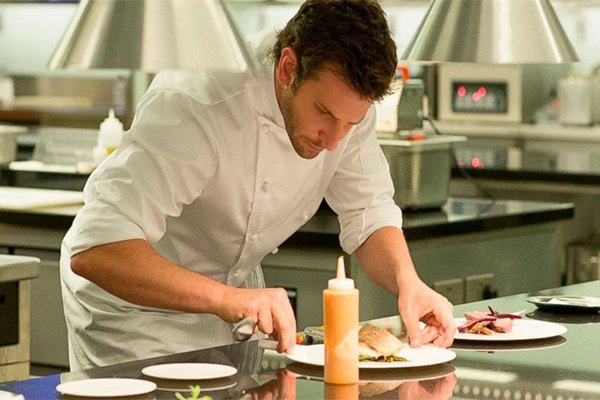
Do you have any personal culinary heroes?
Eric Ripert [executive chef of Le Bernardin] has been a big influence on my life. I really look up to him. He was my chef, but he was also a mentor. He taught me more about life than just running a restaurant. I was one of the few chefs at Le Bernardin who actually got to work with him a lot one-on-one and the things that I took from him have translated more into my general life than just how to run a restaurant or be a chef. I also look up a lot to my other chef from Dish [Sheri Davis] in Atlanta. She really taught me to cook with passion and love.
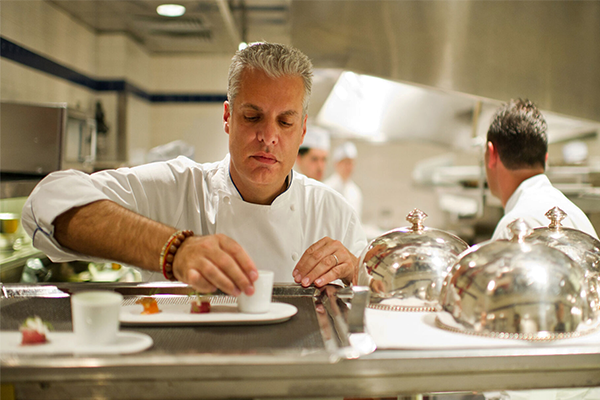
Chef Ripert was all about treating people with kindness and decency even though he ran a very tough kitchen. The kitchen culture was a little archaic in that restaurant, but he was very aware and did a lot to actively change it. He wasn’t one of those chefs like, “This is the way I came up doing it”…he was very aware that things needed to change. And just the way he talked to his staff, like he knew everyone’s name and would make a point to say hello to everyone whenever he was there. I remember the first time I talked to him, he knew my name and it was like my third or fourth day. I was like, “Wow, he knows who I am…and he’s Eric Ripert!” He’s like the 1% of the 1% for restaurant chefs, and he still took the time to get to know every single person.
And he was often on Anthony Bourdain’s shows, right?
Yeah, they were like best friends, man. They were very close. I got to work with Anthony Bourdain on many levels. And the way they both acted on TV was the way they were in real life.
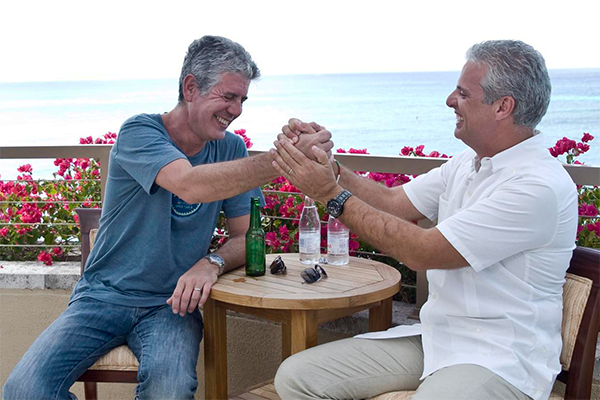
Anthony Bourdain is one of my personal heroes — his writing, his general persona, all of it — can you indulge me and talk a little more about your time and experience with him?
He was definitely a personality. His personality was made for TV but wasn’t a TV personality, if that makes sense. Earlier you asked what movies resonate with me the most for restaurants and I would actually say his book Kitchen Confidential and his shows like A Cook’s Tour. I read his book before I even moved back from Australia, and it still really resonates with me today. Those other TV shows show you the big talking points like drug addiction or the tensions in the kitchen, but they don’t show you the nitty gritty, like getting out at 2:30 AM and wanting to go out and get drunk because your adrenaline’s so high and you’re probably just stressed out. And so a lot of people turn to drugs. And a lot of that’s true, it’s not so glamorous. You’re on your feet all the time. And those are the things that most chefs or aspiring cooks these days don’t realize: all that sweat and those tears and cuts and burns that you deal with. That’s not just talk. It happens and you better be ready to embrace it. And I think that was something Anthony Bourdain did great.
I remember I did an event with Anthony Bourdain called the Cayman Cookout, an annual food festival that Chef Ripert hosts as a culinary ambassador for the Cayman Islands. And Anthony Bourdain was always one of the guest chefs who participated in it. And when I did the event, I would always have to prepare Anthony Bourdain’s dish and one of them was grilling gigantic two-and-a-half-pound tomahawk steaks on the beach over a charcoal grill. And that is not an easy thing to do because charcoal doesn’t have a lot of heat control. I’m getting technical here, but basically cooking in the dark on a beach over charcoal is not the ideal situation to cook tomahawk steaks. And before we started going, Anthony Bourdain was giving me pointers because he used to run Les Halles, which was a steakhouse. And he was like, “You better start cooking the steaks” because this event was for like 2,000 people on the beach and he was right. He helped me out, and he talked to me like a chef. And I felt that energy from him. So that was cool. And that’s the thing that I learned about Anthony Bourdain and Chef Ripert is that they’re both very genuine and authentic, which is why I said their personalities are good for TV. They’re not just putting on the TV personality, it’s just the way they are.
On another note, Michelin recently announced that they’ll be coming to Atlanta. So why do you think it only arrived in 2023?
First and foremost, Michelin promotes tourism. They’re a tire company and they literally want people to drive to places. I think it just took a little while for Atlanta to be recognized as a tourist destination even though there are a lot of international travelers. Obviously Atlanta has a lot of industry, but I don’t know if F&B would be at the top of it. It just took a while for it to get that recognition to be quite frank. If I were to look at the landscape of the food scene in Atlanta and the different markets that have Michelin in them, I think it was about the right time to introduce Atlanta.
It’s definitely going to be interesting to see the first wave of recognized restaurants. I know you’re not driven by that, but I’m sure it’d be cool for one of yours to be on there.
I mean, I would love for Lazy Betty to get it. Obviously it’d be great, but if my main goal was to get a Michelin star, I would not have opened up in Atlanta. It wasn’t around when I first opened here, so it wasn’t a factor for me. But if the list comes out and we get a star, great. If not, it’s okay too. We’ll just keep doing the best we can.
Maybe they’ll zag and give it to Humble Pie.
(laughs) Yeah, maybe Humble Pie will get it.
Are there any particular trends that you’ve noticed with new and successful Atlanta restaurants that you think are starting to define this post-COVID era of dining out?
I’m seeing a lot more counter-style restaurants. I think the reasons why are the labor pool’s kind of hard and the cost of everything has gone up. So I hate to say it, but I just think the quality that restaurants are able to provide just isn’t gonna be the same as pre-COVID. Hopefully things can change and recalibrate, but generally once prices go up, they don’t go back down.
Everything has just gotten much more marginalized. I think any operator that had to close their restaurants because of COVID is not there for a reason. It left the better restaurants still around. So I think because of that, you’re gonna have more competition and the remaining restaurants are gonna have better operators. So I think you’ll probably have a higher percentage of high quality restaurants, but because of all the factors I just listed — rising costs, labor demands, the labor pool — the overall ceiling of products that restaurants can offer is not gonna be quite as high. At least immediately…maybe in five to ten years, things will recalibrate.
What does the next year look like for you?
Just focusing on Lazy Betty and Humble Pie. The main thing I want to do is make sure we can migrate over from the old Lazy Betty space to the new one. And keep pushing Humble Pie to be the best restaurant it can be.
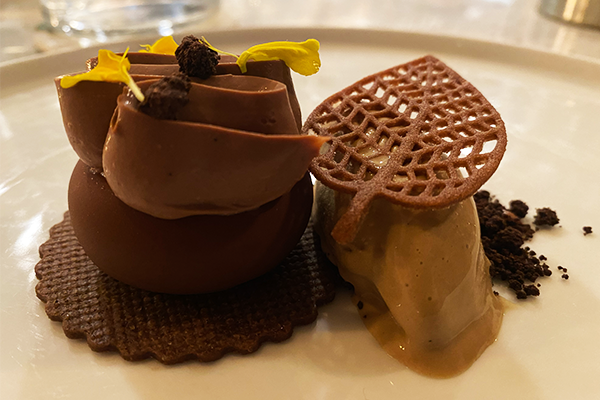
What most excites you about being a chef?
I think there are two main things that excite me the most. The first is coming up with an idea and materializing it. And the second would be working with my team to achieve those goals.
I love both of those processes. When it’s something like thinking of a restaurant, a name, a food, a product…that’s very abstract and I love being able to turn something so abstract into something concrete. And then the next step would be executing the idea with the team and collaborating. I like having a goal and being able to end up with a finished plate of food that you can implement your procedures or operating steps on, then serve to a customer. I think that’s very cool.
And are you able to spend much time in the kitchen in your restaurants these days or not as much as you used to?
Not as much as I used to. I want to start getting back into the day-to-day operations. And that’s something I hope to do in the near or immediate future. Because the last two years I’ve been focused on opening two new restaurants and that’s taken a lot of me away from being able to be there day to day. But now that I’m not opening anything new, there will be less startup stuff because we know what we’re doing. And so over the next year or two, I look forward to really getting back into the scheme of things and the day-to-day. Not just opening a restaurant.


